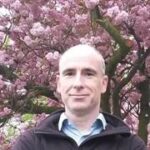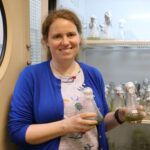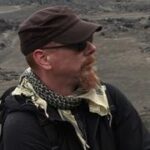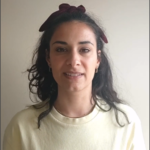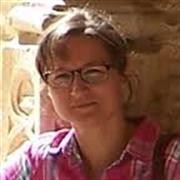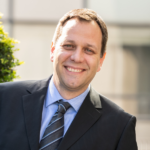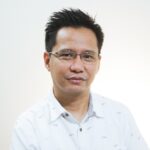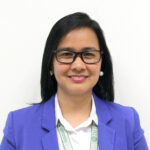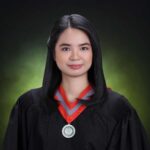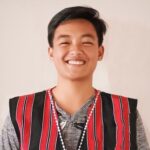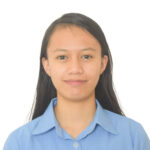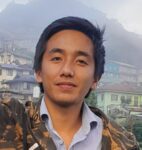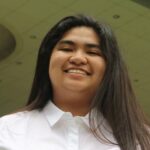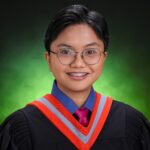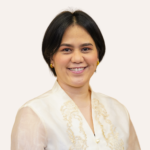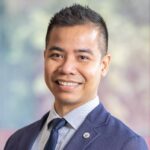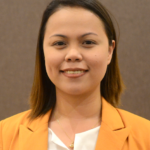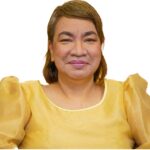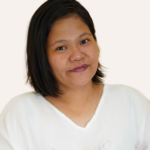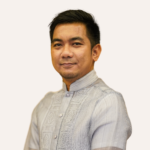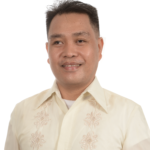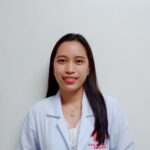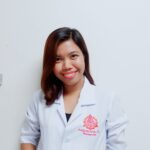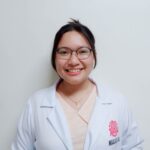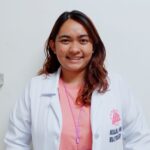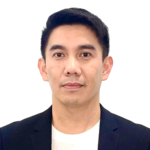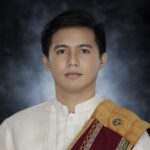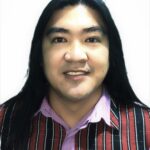About Our Team
Our Funding Agency

This project is funded by the Global Centre on Biodiversity for Climate Programme of the Department for Environment, Food & Rural Affairs (DEFRA), United Kingdom.
Our Collaborators
The Bio+Mine project is a collaborative project between the Natural History Museum (NHM), Imperial College London (ICL), De La Salle University (DLSU), Mindanao State University – Iligan Institute of Technology (MSU-IIT), and University of New South Wales Sydney (UNSW).

The Natural History Museum (NHM) is both a national museum and a multi-disciplinary research organisation housing world class natural history collections comprising >70 million specimens. The NHM receives >5 million visitors per year in addition to hosting >9000 science based visits per year to its collections and facilities from over 100 different countries. The NHM world class imaging & analysis facilities, state-of-the-art molecular laboratories and collection management are all enabled with specialist staff, and it is uniquely placed to tackle projects integrating geological and biological aspects, particularly in the mining sphere where it maintains strong collaborations with industry. The NHM has a specific track record in microbiology and ecology with a previous DEFRA DarwinPlus award (DPLUS083) supporting climate change mitigation tools for the Falklands Islands.
Research Leads
Dr. Paul Schofield
Affiliation: Earth Science Department, Natural History Museum
Expertise: constraining geochemical and geophysical environments from atomic-scale crystal-chemistry and mineral-physics
Paul leads the Mineral Sciences Group at the Natural History Museum overseeing research into mineral diversity, systematics and geonomics and into the fundamental properties of minerals. His research focuses on the atomic- and lattice-scale properties of minerals and how this information can be used to constrain the conditions of geological, geochemical and cosmochemical processes. Paul has over 30 years of experience in applying synchrotron and neutron methods to investigate mineral properties.
Prof. Richard Herrington
Affiliation: Earth Science Department, Natural History Museum
Expertise: behaviour of critical metals, focused on deep weathering processes in surface systems and cobalt and rare earth metals
Richard is co-lead scientist on the Natural History Museum’s research theme “Resourcing the Green Economy” focused on devising nature and people positive ways to decarbonise our use of the Earth’s resources. Formerly working in the minerals industry and until 2022 Head of Earth Sciences at the NHM, he has spent 40 years finding ways to discover and utilise economically important minerals, publishing more than 100 peer reviewed papers. He is also currently a member of the UK Government’s Critical Minerals Expert Committee and Councilor of the Society of Economic Geologists.
Dr. Anne Jungblut
Affiliation: Life Sciences Department, Natural History Museum
Expertise: Microbial diversity discovery and environmental microbiology using DNA sequencing, microscopy and laboratory experimentation, polar microbiology, agriculture, and mine rehabiliations, and cyanobacteria
She is a researcher in the Life Sciences Department, with particular focus on diversity, evolution and ecology of polar cyanobacteria, microbial mats, toxic cyanobacteria and polar soils. Current projects of her research group include: 1) Diversity and distribution patterns of polar cyanobacteria along eco-zones and latitudinal and environmental gradients; 2) Study of cyanobacteria and photosynthetic microbial mats in Antarctic lakes to understand microbialite formation and responds to environmental change; 3) Using historic and Antarctic herbarium collections to study cyanobacteria; 4) Microbial soil biogeography in the Southern Atlantic: South Georgia and the Falkland Islands, 5) The Microverse: a UK-wide citizen science project on eDNA assessment of microbial diversity in urban environments.
Dr. Robin Armstrong
Affiliation: Earth Science Department, Natural History Museum
Expertise: Porphyry-style mineralisation; development of software techniques for X-ray CT textural characterisation of geological materials. Geographical Information Systems
Robin is a mineral deposits geologist who employs a range of tools and skills to study the nature of economically significant mineralization and its distribution through geological time and space. As the Mining Sector Leader, he oversees the NHM’s consultancy services to the Mineral Exploration and Mining industry and have authored over 50 confidential consultancy reports. He has a diverse skills base that includes mineralogy, geochemistry, field mapping and sampling, and geographical information systems. He has a specific interest in volcanic arc related styles of mineralization such as porphyry copper deposits and epithermal gold deposits. He has a particular academic interest in the mineral deposits and metallogeny of the Central Asian Orogenic Belt. Currently, he is a part of the NHM team contributing to the EU Horizon 2020 funded FAME [Flexible And Mobile Economic processing technologies] project investigating the mineralogy, sustainable extraction and beneficiation of greisen, pegmatite and skarn deposits associated with rare metal granite systems in Europe.
Dr. Silvia Salatino
Affiliation: Core Research Laboratories, Natural History Museum
Expertise: Computational biology, bioinformatics, metagenomics, amplicon sequence analysis, biodiversity ranging from microbes to arthropods
Silvia’s primary focus is developing computational pipeline to analyse sequencing data from several applications, including DNA metabarcoding, shotgun metagenomics, and de novo assembly. Before joining the NHM, she earned a PhD in Bioinformatics in Switzerland and spent five years working at the Wellcome Centre for Human Genetics in Oxford.
Dr. Ana Santos
Affiliation: Life Sciences Department, Natural History Museum
Expertise: Environmental biotechnology, geomicrobiology, biohydrometallurgy, biomining
Ana is a Research Fellow in Geomicrobiology with over 8 years of experience in the field of biohydrometallurgy, focusing on mineral-microbe interactions for the development of bioprocesses for metal extraction as well as bioremediation strategies for the treatment and valorisation of mine wastes. She has experience in designing modular unit protocols and optimising bio-based integrated systems for metal removal and recovery.
Post-Doctoral Research Associates
Dr. Maria Magliulo
Affiliation: Life Sciences Department, Natural History Museum
Expertise: Microbiology, microbial ecology, microbial metabolism, metagenomics, proteomics, astrobiology
A strong interest in how life evolved led me to a graduate career in Molecular Biology. Intrigued by the highly diversified phenotypic traits of life on Earth, I soon realised that to capture the essence of evolution I would have needed to “zoom out” from this molecular perspective, so I improved my studies in Ecology. My scientific curiosity rotates around the understanding of the co-evolution between life and its geochemical context, to join the discussion about the origin of life on Earth and the possibility of life elsewhere in the Universe. I pursued a career in Microbiology based on three counts: microbes are the first life form to have originated, they are involved in biogeochemical cycles, and they are inhabitants of extreme environments.
Dr. Agnieszka Dybowska
Affiliation: Earth Sciences Department, Natural History Museum
Expertise: Environmental science, mineral chemistry, analytical mineralogy with expertise in multitechnique characterisation on complex heterogeneous environmental materials
I am an environmental chemist with research experience in the areas of experimental geochemistry, in particular contaminated site investigation and remediation, environmental sampling, sample preparation and analysis, statistical analysis of large datasets and environmental nanoscience, in particular detection, tracing and characterization of engineered and natural nanoparticles. My work so far focused on chemistry of environmental pollutants, their detection in the environment, interactions within the environment, potential impact on the environment and human health and clean up technologies.

Research Leads
Dr. Pablo Brito-Parada
Affiliation: Earth Science and Engineering Department, Imperial College London
Expertise: design and optimisation of mineral processing equipment; multi-criteria decision support tools
His research activity focuses on mineral resources, from its extraction, processing, and use, to the links between critical raw materials and other resources, such as energy and water. He is particularly interested in developing frameworks that incorporate systems thinking and sustainability principles into the management of mineral resources.
Dr. Yves Plancherel
Affiliation: Earth Science and Engineering Department, Imperial College London
Expertise: trace element biogeochemistry, climate science, remote sensing, data science (field, data analysis and modelling)
Yves is a lecturer in the department of Earth Sciences and Engineering and an affiliate of the Grantham Institute. He leads the “Endian” (Environmental Diagnostics and Analysis) research group. The goal of the Endian group is to develop a comprehensive understanding of global biogeochemical dynamics in a changing environments. It aims to support the green transition while trying to anticipate the pollution issues of that new low-carbon world by consolidating the knowledge base and build the datasets and tools that will be needed in the next decades.
Research Assistant
Henry Cording
Affiliation: Earth Sciences and Engineering Department, Imperial College London
Expertise: environmental data science and machine learning
Henry is a MSc student at Imperial College, studying environmental data science & machine learning. He is currently developing a software to largely automate the segmentation (classification) of arbitrary features in remote sensing imagery. For this he is employing deep learning models whose predictions have already helped to visualize the location of Chayote plantations around the Santo Nino site, as well as analyze their health by using with the NDVI index over predicted areas.
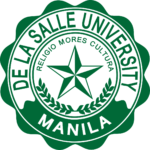
De La Salle University (DLSU) is renowned for its academic excellence and prolific research. It appears in both the QS (80-1000) and the Times Higher Education world university rankings (80-1000). The Chemical Engineering Department is an internationally recognised Centre of Excellence known for its research on the environment, process systems, and materials.
Research Leads
Dr. Arnel Beltran
Affiliation: Chemical Engineering Department, De La Salle University – Manila
Expertise: membrane technology, wastewater, material engineering, algal carbon sequestration, electrolysis disinfection
Dr. Arnel B. Beltran is a licensed chemical engineer, full professor and the vice chair of the Department of Chemical Engineering, De La Salle University-Manila. He obtained his Ph.D. degree in Environmental Engineering and Biotechnology from Myongji University, Yongin Campus, South Korea. He is a recipient of the Outstanding Young Scientist Award for 2022 by National Academy of Science and Technology and 2022 CEAT Distinguished Alumnus by University of the Philippines Los Baños Alumni Association, Inc. He is actively involved in various research projects and has showcased his expertise with 58 Scopus-listed publications and an h-index of 13.
Dr. Aileen Orbecido
Affiliation: Chemical Engineering Department, De La Salle University – Manila
Expertise: AMD treatment, wastewater treatment and management, eco-toilet
She is the Chairperson of the Department of Chemical Engineering of DLSU. She is the principal investigator of several DOST-funded projects, focusing on acid mine drainage treatment. She has been a recipient of externally-funded international projects (USAID-STRIDE and JICA) on water and wastewater treatment and management, as well as a consultant to various projects funded by the UNIDO, World Bank, and local water utilities.
She has 55 Scopus-indexed publications with an h-index of 11. She is actively involved in mentoring early career researchers and a recipient of 2022 NAST Environmental Science Award (Special Citation).
Dr. Michael Angelo Promentilla
Affiliation: Chemical Engineering Department, De La Salle University – Manila
Expertise: socio-environmental engineering, multi-criteria analysis, materials engineering
Dr. Michael Angelo Promentilla is the Head of Waste and Resource Management unit of the Center for Engineering and Sustainable Development Research at DLSU. He currently leads the research program (18+) funded by PCIEERD-DOST in collaboration with CMU and MSU-IIT to demonstrate sustainable management of Ni-laterite mine waste through reuse, recycling, and reprocessing (3R).
He has more than 100 publications with a Google scholar h-index of 23. He is the founding Head of the Geopolymer and Advanced Materials Engineering Research for Sustainability Lab situated at DLSU while actively involved in mentoring young researchers.
Research Assistants
Engr. Regina Damalerio
Affiliation: Center for Engineering and Sustainable Development Research, De La Salle University – Manila
Expertise: water and wastewater, nutrient recovery, optimization
Engr. Regina Damalerio is a research assistant under the Center for Engineering and Sustainable Development Research Department of De La Salle University – Manila. She also took her Bachelor and Master’s degree in Chemical Engineering at the same institution where she developed her interest in water and wastewater treatment and optimization. She has published few articles on nutrient recovery and handled several externally-funded local and international projects. She is actively assisting the Project Leads in DLSU in mentoring young researchers.
Joshua Pocaan
Affiliation: Center for Engineering and Sustainable Development Research, De La Salle University – Manila
Expertise: wastewater treatment, acid mine drainage, optimization
Joshua Pocaan is a research assistant at the Center for Engineering and Sustainable Development Research at De La Salle University. He recently graduated under the BS/MS Honors Program for Chemical Engineering. Currently, he is actively studying on treatment strategies for Acid Mine Drainage (AMD).
Alleah Ananayo
Alleah P. Ananayo is a research assistant (Bio+Mine) at the Center for Engineering and Sustainable Development Research at De La Salle University. She completed her Bachelor’s degree in Criminology at University of the Cordilleras (UC) last August 2022. She is a former Sangguniang Kabataan Chairman of Brgy. Ambassador, Tublay, Benguet. Presently, she is an active member of various organization in their community.
Pamela Flyn Pisda
Pamela Flyn Pisda finished her Bachelor’s Degree in Technology and Livelihood Education major in Home Economics from Benguet State University. She is currently working as a Research Assistant under the Biodiversity Positive Mining for the Net Zero Challenge (Bio+Mine).
David Guilingen
David Guilingen finished his degree in Bachelor of Science in Agricultural and Biosystems Engineering at Benguet State University. He is currently working as a project technical assistant in the project Biodiversity Positive Mining for Net Zero Challenge (Bio+Mine). He started working in April 2022 as a Research Assistant. From this experience, he learned the value of hardwork, efficiency and communication.
Jethro Guilingen
Jethro Guilingen is currently working as a Research Assistant in the Bio+Mine -Rehabilitating Sto Niño project. In the year 2022, he graduated Bachelor of Science in Information Technoloy at Benguet State University. He is now a fresh graduate gaining more experience on the outside world, meeting different people and enhancing his skills.
Engr. Brian Gerald Bueno
Affiliation: Center for Engineering and Sustainable Development Research, De La Salle University – Manila
Expertise: septage and sewerage treatment
Engr. Brian Bueno is a research assistant for Center for Engineering and Sustainable Development Research Development (CESDR) of De La Salle University (DLSU). He completed his Bachelor’s Degree in Chemical Engineering last 2021 and is taking Master’s of Engineering in Environmental Engineering and Management. His specialization, wastewater treatment, includes septage and sewerage treatment and is currently working on passive treatment of acid mine drainage (AMD).
Jaica Mae Pagaduan
Expertise: hydraulics and water resources engineering
Jaica is a research assistant in the BioPlus Mine project. She finished her Bachelor of Science in Civil Engineering at De La Salle University Manila. Her specialization is Hydraulics and Water Resources Engineering, which includes flood control and drainage engineering, coastal engineering, and water supply management.
Michelle Airah Pablo
Affiliation: Center for Engineering and Sustainable Development Research, De La Salle University – Manila
Expertise: chemical engineering fundamentals, mass transfer, drying process, kinetics
Airah is currently a research assistant under Center for Engineering and Sustainable Development Research (CESDR) at De La Salle University (DLSU). She recently graduated BS Chemical Engineering from the same university. She had her internship at Center for Empowerment, Innovation, and Training on Renewable Energy (CentRE) where she contributed in the costing and design of their RE projects and policy recommendations on existing local RE policies.
Johara Capingian
Affiliation: Center for Engineering and Sustainable Development Research, De La Salle University – Manila
Expertise: chemical engineering, environmental engineering, and biochemical engineering
Johara is currently a research assistant at the Center for Engineering and Sustainable Development Research (CESDR) at De La Salle University (DLSU). She recently graduated BS in Chemical Engineering as cum laude from Saint Louis University, Baguio City. She was also a DOST-JLSS Scholar. She had her internship at the Baguio-City Environment and Parks Management Office (CEPMO), specifically at the Ambient Air and Waste Water Management Division. She played a crucial role in supporting the monitoring and testing of various water parameters, as outlined in the guidelines stated in DAO 2021-19 and DAO 2016-08.
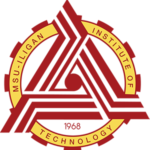
Research Leads
Dr. Mylah Villacorte-Tabelin
Affiliation: Developmental Biology Department, Mindanao State University – Iligan Institute of Technology
Expertise: developmental biology, genetics, biotechnology
Dr. Mylah Villacorte-Tabelin is a Professor in Biology at the Department of Biological Sciences, College of Science and Mathematics, Mindanao State University-Iligan Institute of Technology (MSU-IIT). She has been leading and collaborating on many national and international research projects (~USD 753,000) and has more than 15 publications with a Google scholar h-index of 14. She was awarded scholarships from the Japanese government to pursue graduate studies in Japan. She was a Postdoctoral Fellow at de Duve Institute, UCL before joining MSU-IIT. Her current research pertains to the screening of various inorganic and organic toxicants in the environment, how they are affecting organ development, and which cell signaling pathways are they altering using animal models. She is also mentoring young researchers and graduate students at MSU-IIT.
Dr. Carlito Tabelin
Affiliation: Materials and Resources Engineering Technology, Mindanao State University – Iligan Institute of Technology
Expertise: mine drainage management, fate and transport of inorganic pollutants, electrochemistry, tailings management, monitoring and remediation of polluted sites
Carlito B. Tabelin is a Professor of Metallurgical Engineering in the College of Engineering and the Acting Director of the Research Institute of Engineering and Innovative Technology (RIEIT) at Mindanao State University – Iligan Institute of Technology (MSU-IIT). He has been leading and collaborating on many national and international research projects (>Php 110M) and has more than 125 Scopus-indexed publications with a Google scholar h-index of 41. He was awarded scholarships from the Japanese government to pursue graduate studies in Japan and worked as a Postdoctoral research fellow for Mitsubishi Materials Corporation-Hokkaido University endowed laboratory in Soil Environment Engineering. He was an Assistant Professor at the Division of Sustainable Resources Engineering of Hokkaido University, Japan and a Lecturer of Mine Waste Management at the School of Minerals and Energy Resources Engineering at the University of New South Wales before joining MSU-IIT.
Dr. Irish Mae Fernandez-Dalona
Affiliation: English Department, Mindanao State University – Iligan Institute of Technology
Expertise: discourse analysis, cross-cultural communications, socio-linguistics
Assoc. Prof. Irish Mae Fernandez-Dalona has acquired both her Master’s degree in English (Major in Applied Linguistics) and PhD in Education (Major in Applied Linguistics) in Davao City, Philippines.
She recently finished an ERASMUS fellowship for mainstreaming Peace Education and Gender Sensitivity in the Curricula. She also took Cross-Cultural Communication courses and worked as a Teaching Assistant at the University of Michigan, in Ann Arbor, Michigan, USA, from 2014-2015, through Fulbright’s Foreign Language Teaching Assistant (FLTA) program. Her research interests include Discourse Analysis, Sociolinguistics, Communications, and English Language Teaching. She has published papers in refereed and indexed journals in Asia, the most recent one has been indexed by ERIC and SCOPUS. Starting in August 2023, Assoc. Prof. Fernandez-Dalona, is the Director of the Undergraduate Programs/Center for General Education of the Mindanao State University-Iligan Institute of Technology (MSU-IIT). Aside from teaching undergraduate and graduate courses in the university, she renders teacher training facilitation for secondary and tertiary institutions in different regions in the Philippines.
Dr. Vannie Joy Resabal
Affiliation: Materials and Resources Engineering and Technology Department, Mindanao State University – Iligan Institute of Technology
Expertise: mineral processing (comminution), corrosion engineering
Dr. Vannie Joy Resabal is a professor of Metallurgical Engineering at Mindanao State University-Iligan Institute of Technology (MSU-IIT). She obtained her Master’s degree in Corrosion Engineering at Hokkaido University in Japan with a MEXT scholarship by the Japanese government. Continuing her academic journey, she received the Australia Awards scholarship to pursue her PhD in Minerals Processing at The University of Queensland in Australia. With her background and expertise, she has taken on leadership roles in numerous national research projects and participated in internationally-funded projects in collaboration with De La Salle University. In addition to her commitment to research, she is also actively involved in mentoring and guiding young researchers through their graduate and undergraduate theses. Moreover, she holds the position of Director of the Knowledge and Technology Transfer Office (KTTO) of MSU-IIT, where she leads and oversees various initiatives related to intellectual property and technology transfer.
Dr. Ma. Reina Suzette Madamba
Affiliation: Biological Sciences Department, Mindanao State University – Iligan Institute of Technology
Expertise: microbiology (microbial ecology, environmental microbiology), genomics
Dr. Ma. Reina Suzette B. Madamba is an Associate Professor of the Department of Biological Sciences at Mindanao State University- Iligan Institute of Technology and currently the chairperson of the department. Her interest is in the “omics” of soil bacterial community in mining sites both in field as well as in microcosm studies. She had lead an institute- funded project on the biochemical and molecular characterization of Hg-tolerant bacteria isolated from artisanal small scale gold mining (ASGM) site and initiated last year the study of a freshwater lake in Bukidnon to assess its environmental quality using nematodes as bioindicator. She is one of the collaborators in the VLIR-OUS (Ghent University), a two year research project entitled, ”Developing Natural Ways to Rehabilitate Mercury-Contaminated Soils and Evaluating their Efficiency Using Bioindicators”. She is actively involved in mentoring young researches in the conduct of their graduate and undergraduate thesis and has several publications with a Google scholar h-index of 5.
Dr. Nanette Hope Sumaya
Affiliation: Plant Biology Program, Mindanao State University – Iligan Institute of Technology
Expertise: plant biology, phytoremediation, nematology, entomology, biological control, biotechnology
Dr. Nanette Hope Sumaya is a faculty member of the department of biological sciences of MSU IIT. Her research works center primarily with nematodes, plants, insects, bacteria and fungi. She is mainly on the use of biocontrol agents for effective and sustainable insect pest strategies and identification of plant and fungal species for bioremediation in different mining areas of Mindanao, Philippines. At present, she has a research project on the “Decontamination, Mineral Recycling and Product Development of Eroded Materials from Disturbed Mining Sites in Hinatuan Island, Surigao del Norte” In Hinatuan Mining Corporation and the use of fungi for potential bioremediation and biocontrol.
Jaime Guihawan
Affiliation: Department of Biological Sciences, Mindanao State University – Iligan Institute of Technology
Expertise: remote sensing, plant diversity
Jaime Q. Guihawan is an Assistant Professor at Mindanao State University – Iligan Institute of Technology (MSU-IIT) where he obtained his Master’s degree in Environmental Science. He has been awarded by Relief International, a US-based NGO, as Champion on Watershed and Biodiversity Conservation for his outstanding contribution to implementing payment for ecosystem services for watershed management and biodiversity conservation in the Philippines. As Senior Science Research Specialist, he was one of the pioneers in mapping the natural resources in the Philippines using Light Detection and Ranging (LiDAR) remote sensing technology, a program under the Department of Science and Technology and University of the Philippines. He is currently involved in various biodiversity studies in both flora and fauna of Mindanao mountain ranges.
Research Staff
Isidro Arquisal
Affiliation: Biological Sciences Department, Mindanao State University – Iligan Institute of Technology
Isidro B. Arquisal is a licensed nurse and is currently employed as a laboratory technician in the Department of Biological Sciences at MSU-IIT. He is currently pursuing his Master of Science in Biology. His research interests are: public health, environmental health, and invertebrate zoology. At present, he is one of the project leaders in the research “Extended Spectrum Beta-Lactamase Enterobacteriaceae in Irrigation Waters of Bukidnon (Phase 1)”.
Research Assistants
Alissa Jane Mondejar
Affiliation: Biological Sciences Department, Mindanao State University – Iligan Institute of Technology
Alissa Jane Mondejar is a research assistant at the Premiere Research Institute of Science and Mathematics (PRISM) of Mindanao State University-Iligan Institute of Technology (MSU-IIT). She completed her Bachelor’s Degree in General Biology as Cum Laude and Master’s Degree in Biology, both from the same institution. Her research studies specializes on molecular biology, developmental biology, and microbiology. She has been involved in research projects funded by the DOST in collaboration with other institutions, including the evaluation of stress-gene expression of nematodes exposed to heavy metal pollution.
Florifern Pagliwanan
Affiliation: Biological Sciences Department, Mindanao State University – Iligan Institute of Technology
Florifern Paglinawan works as a research assistant at the Premiere Research Institute of Science and Mathematics (PRISM) of Mindanao State University-Iligan Institute of Technology (MSU-IIT). She studied Master’s of Science in Biology on the same institution as a DOST-ASTHRDP scholar and studied the Life History Trait (LHT) of soil nematodes found in a small-scale mining area. She attained her master’s degree on the February of 2021. She worked and is currently working on various research projects involving assessment of heavy metal contamination in soil mining areas while using soil microorganisms, such as soil nematodes and bacteria, as bioindicators.
Kryzzyl Maulas
Affiliation: Biological Sciences Department, Mindanao State University – Iligan Institute of Technology
Kryzzyl Maulas is a research assistant at the Premiere Research Institute of Science and Mathematics (PRISM) of Mindanao State University-Iligan Institute of Technology (MSU-IIT). Her research studies specialize in microbiology and bioremediation. She has actively contributed to two institute-funded projects and is currently pursuing her master’s degree with a thesis supported by VLIR-OUS (Ghent University) funding. Her research aims to develop natural methods for rehabilitating a mercury-contaminated abandoned ASGM site in Mindanao.
Janna Andalan
Affiliation: Biological Sciences Department, Mindanao State University – Iligan Institute of Technology
Expertise: plant biology, phytoremediation
Janna R. Andalan is a Research Assistant at the Premier Research Institue of Science and Mathematics (PRISM) of Mindanao State University-Iligan Institute of Technology (MSU-IIT). She completed her Bachelor’s degree in Biology Major in Botany last 2017 and her Masters in Biology last March 2023 from the same University. She is involved in some MSU-IIT-OVCRE internally funded projects in a mine site in Tawi-Tawi and the Optimization of in vitro propagation of medicinal plants in Lanao del Norte. Her research studies specialize in plants, tissue culture, molecular biology, and phytoremediation. Currently, she is working on the heavy metal tolerance of fungal species and its efficacy in the phytoremediation activity of a potential heavy metal hyperaccumulator plant through a mesocosm approach.
Engr. Ronben Baute
Affiliation: Materials and Resources Engineering Technology Department, Mindanao State University – Iligan Institute of Technology
Engr. Ronben Baute is a research assistant at the Department of Materials and Resources Engineering & Technology, College of Engineering, Mindanao State University-Iligan Institute of Technology (MSU-IIT). He completed his bachelor’s degree in metallurgical engineering from the same university and has been involved in several DOST-PCIEERD-funded projects including the waste valorization of coal fly ash to recover critical rare earth elements (REEs) by hydrometallurgical techniques. Presently, he is working on the development of Al/Fe bimetallic materials synthesized from Al-scrap for the recovery of valuable metals from acid mine drainage (AMD).
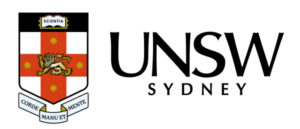
University of New South Wales (UNSW) is one of the world’s top 50 universities according to the Aggregate Ranking of Top Universities in 2021 and is recognised as a research leader in water, climate, environment and sustainability. The school of Minerals and Energy Resources Engineering was ranked 4th in the world (QS World University Rankings) in 2020 and the school of Education was given the highest ranking by Excellence in Research for Australia.
Research Lead
Dr. Dennis Alonzo
Affiliation: School of Education, University of New South Wales
Expertise: assessment, curriculum, education, equity, teacher education and development
Dennis Alonzo is a senior lecturer at the University of New South Wales Sydney. He researches the intersections of curriculum, assessment, equity, evaluation of educational programmes, and teacher education and development. He has worked with educational systems and schools nationally and internationally to lead their assessment reforms focused on articulating policies, developing assessment resources, implementing professional development, and changing teachers’ beliefs and practices.
Research Lead
Marlon Suelto
Affiliation: School of Environmental Science and Management, University of the Philippines Los Baños
Expertise: geology, geologic hazards, information systems, urban and regional planning, environmental planning
Marlon Suelto is a licensed geologist, licensed environmental planner, and PhD student at the University of the Philippines Los Baños. He researches geohazards, land use planning, urban planning, eco-DRR, geographic information system (GIS), and environmental planning. He has worked with mapping systems of government agencies to lead their environmental impact studies focused on articulating environmental policies.
Consultant
Abner Lawangen
Affiliation: Disaster Risk Reduction and Management Office, Benguet Provincial Government Unit
Expertise: disaster risk reduction, crisis management, environmental planning and management
Abner Lawangen is a Licensed Environmental Planner and a Crisis and Disaster Risk Reduction and Management Officer of the Provincial Government of Benguet, Philippines. He completed his Masters Degree in Crisis and Disaster Management at the University of Portsmouth, United Kingdom. He is awarded the Dangal ng Bayan Award in 2016 and the Centennial Most Distinguished Alumni Award in Resilience and Disaster Management by the Benguet State University. His research and extension interests include village-level disaster risk reduction and management, culture and disaster, and environmental risk management
Website and Social Media Team
Ladylove May Baurile
Affiliation: KD Hall Communications/Foundation
Expertise: multimedia design, events management, social media management
Ladylove May Baurile is an accomplished communications professional with over 8 years of experience in multimedia design, social media management, and event organizing. She has led nationwide activities in the Philippines, including the National Biotechnology Week and the National Science and Technology Week Health Cluster. Ladylove’s commitment to advancing science and technology is evident through her role as Assistant Editor of Transactions NAST PHL, a journal published by the National Academy of Science and Technology Philippines. Ladylove holds a Bachelor’s degree in Development Communication from the University of the Philippines Los Baños (cum laude) and a Master’s in Community Development from the University of the Philippine Diliman. Currently, she works as a Communications Designer in a US-based PR agency.
Abdul Jalil Yacob
Affiliation: Software Development Department, Emphasys Centre
Expertise: software engineering (web development, cross-platform mobile app development)
Abdul Jalil T. Yacob is a Software Developer at the Emphasys Centre, Nicosia, Cyprus. As a Software Developer, he is focusing on the design and development of information systems and cross-platform mobile applications. He completed his Bachelor’s degree in Computer Science at Mindanao State University (MSU), in Marawi City, Philippines. He has served as an Information Technology Officer at the National Academy of Science and Technology (NAST), under the Department of Science and Technology (DOST), Philippines.
